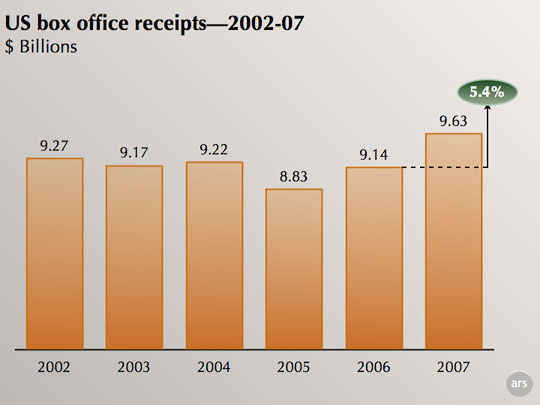After learning how a bill becomes a law, your kids might also learn about the wonders of copyright, thanks to the MPAA. The motion picture trade group has signed an agreement with the popular Weekly Reader publication for kids that will highlight "canine crime-fighting ambassadors Lucky and Flo." That's right: DVD-sniffing dogs will educate children about the value of copyrights in a "fun and exciting way." Sounds like a blast.
But this sort of thing has become crucial to the MPAA. Take a look at the group's homepage; nearly everything is about copyrights and piracy. The MPAA routinely asserts that the movie business is being decimated by piracy, but the press release announcing the Weekly Reader deal sits just below a far more interesting piece of news (PDF): data that shows the US box office doing its biggest year of business ever in 2007, growing 5.4 percent over 2006 and bringing in $9.63 billion.

Message to kids: Even dogs can
respect copyright. Why can't you?
Piracy is so bad, according to the MPAA, that we need special legislation to target the dastardly college pirates who are destroying the business. It's so bad that Weekly Reader subscribers will learn about the $7 billion a year "lost" to Internet piracy. It's so bad that the MPAA wants ISPs to ignore years of common carrier law and the promises of "safe harbor" and start filtering their traffic, looking for copyright violations.
The real world isn't quite this simple, of course. It turns out that the MPAA's college numbers were off by a factor of three, a revelation that came after years of hiding the study's methodology but continuing to lobby Congress with its numbers. There's no possible way that the MPAA can truly know what it "lost" to piracy, either, as it has no real idea what percentage of downloads would have resulted in sales. And, with the notable exception of AT&T, no other major US ISP has publicly entertained the idea of filtering traffic.


